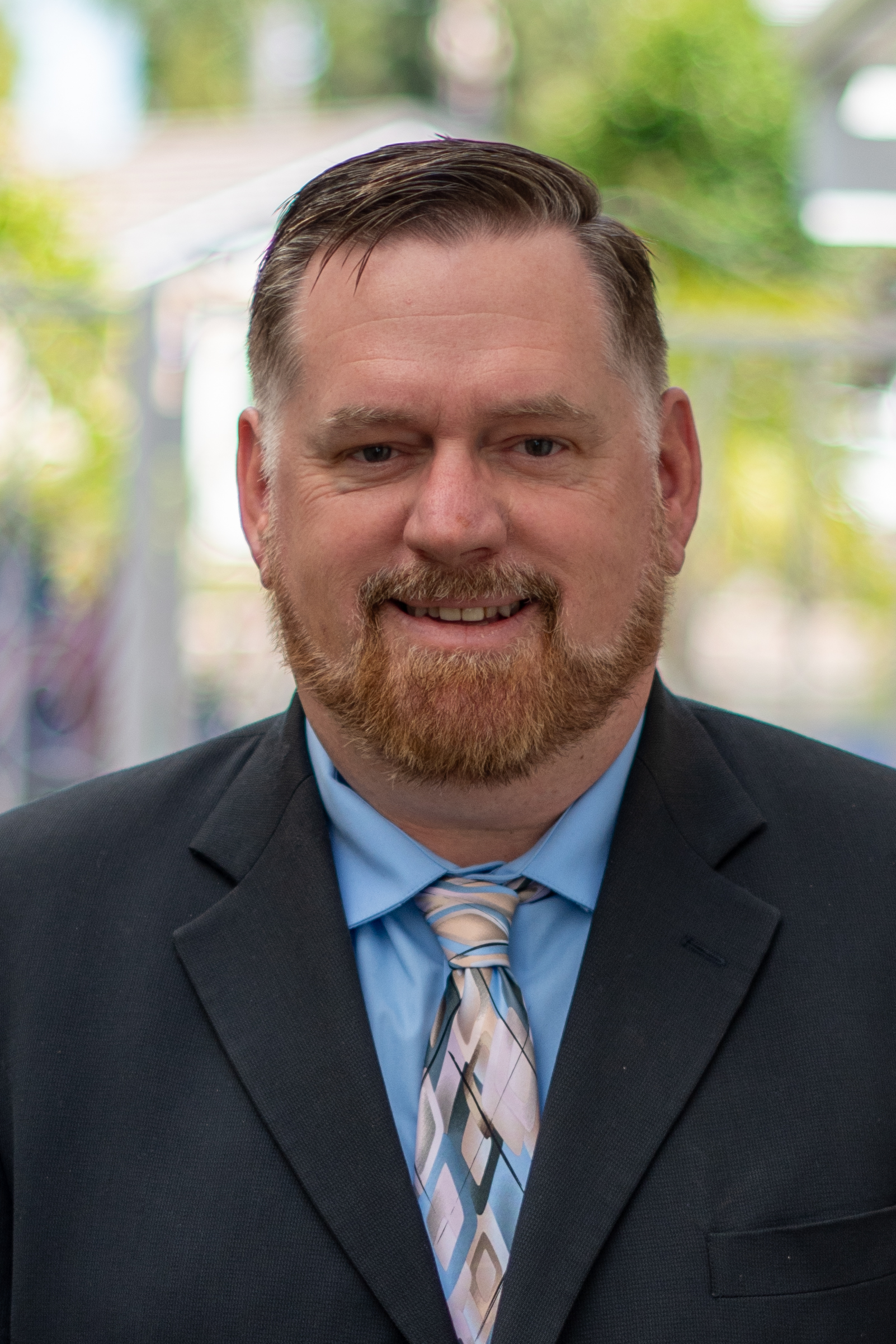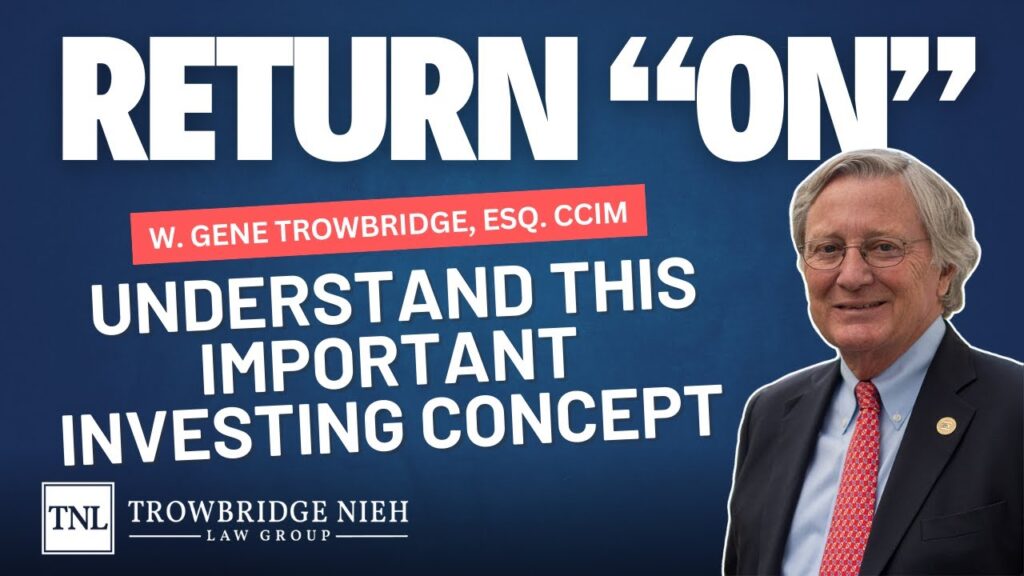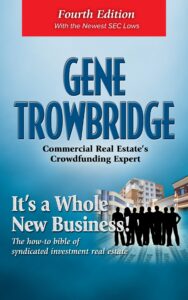Our Process to ENSURE our clients legal compliance with the SEC broken down by Dave Utley, MBA
In this TBD with TLG, syndication attorney Gene Trowbridge is joined by Dave Utley, MBA and operations manager for Trowbridge Law Group, discuss the our firms offering process to give a greater understanding of what we do for our clients so that they can focus on their deal.
Transcript
 | GT | - One of the most asked questions we get at the law firm from people who are doing what I call their homework call, is, "Can you explain the process that we'll go through if we employ your firm to do our offering?" Hi, this is Gene Trowbridge, and I'm here with another episode of TBD with TLG. Our episodes are always last minute discussions. That's why it's TBD, To Be Determined, and it's Trowbridge Law Group. And I'm one of the partners at Trowbridge Law Group. And I'm happy to be here today with our operations manager, Mr. Dave Utley, Mr. Philadelphia, who's an Eagle fan, and it's just obnoxious how much of an Eagle fan he is, but anyhow, isn't that the truth, Dave? |
 | DU | - That is. Hey, you can take me out of Philadelphia, but you can't take the Philadelphia out of me. But I am honored to be your first guest on a TBD with TLG. I hope I can admirably fill in for Jonathan today. |
 | GT | - Well, I think you can. Jonathan right now is indisposed, as he's moving up to Northern California to make a new home up in the San Francisco Bay area. And we're all virtual. We're all working virtual. And so that's going to be fine. The reason I have Dave as a guest today is Dave is our operations manager, and Dave, I believe you've been doing that particular job for a number of different legal firms and entities throughout the last 12 years, is that right? |
 | DU | - Yeah, for the last 12 years, I've been involved in the securities law business. So it's been exciting. It's been fun seeing all the different projects all our clients do, and helping them out, getting their projects done and keeping them legally compliant. |
 | GT | - That's right. And so a lot of different faces have come and gone in this 12 years, I bet. And you and I have been working together for six years, going on seven, I think that's right. |
 | DU | - Six years. I think six and a half now. |
 | GT | - Six and a half. Wow, time's flying. |
 | DU | - It does. It's my daughter's 24th birthday today. So makes me feel old. |
 | GT | - Oh my gosh. |
 | GT | - Is that the daughter that's on the East Coast? |
 | DU | - Yep, she's on the East coast. She's moving this weekend to Boston, her first apartment on our own. So it's pretty exciting. |
 | GT | - That is exciting. So in your 12 years and your preparation to be our operations manager at Trowbridge Law Group, I understand you acquired an MBA, and I don't know if you're a certified paralegal, I don't know if the word certified is right, but I knew you are a paralegal also, isn't that correct? |
 | DU | - It is. I went to paralegal school back in Philadelphia. I worked for a law firm back there doing mortgage foreclosures, what I did when I was back in Philly, and I moved out to California, had my own business for a while for about seven years. We had a couple of children's gyms, a business partner and I, and then I went back to school. I sold the gym, went back to school, and got my MBA, and then got involved in this securities law business. |
 | GT | - It's a crazy business. You've seen a lot changes. So as I said in the opening, I take a lot of calls, and, you know, people go to the website and they sign up for a free consultation call with either myself or Jonathan. And probably the most asked question is, "Will you explain the process on how this works?" So let's just go through the process. I'll be talking for a while, and then Dave will pitch in where he's involved in the process. And I think it we'll give you a good overview of what it is. The very first thing we would have in the process is just a consultation call with the prospective client. So we get a feeling for what the client wants to accomplish. What is the asset the client is working with? How does the client anticipate that they're gonna go forward and raise money to put this opportunity, to put this project to work? And, you know, we don't always do real estate. There are a number of things that we do. So we always have to this consultation ahead of time. And as I said, I call it a homework call. And I work with some organizations that actually require their people to do a homework call with what they call an SEC attorney, before they get started. And so I get those calls. But when I feel that the client is ready to get started, the first thing, really, the process is I put together what I call the fee agreement package. And the fee agreement Package is kind of what it sounds like. There's a fee agreement. And the fee agreement is the contract with the client. And it really covers two things. It's how are we gonna do business together? What do I expect of the client? What can the client expect of the attorney? How much is it gonna cost? Are there going to be fixed fees, flat fees to start with? Are there gonna be some supplemental fees as we go forward? So that's one document. And then the next document is something called the "Bad Actor Questionnaire." Now, if you're gonna sell securities and you're gonna have a license to sell securities, you have to go through all sorts of background checks and do all sorts of things, but there's never really been a check for this sponsor, the syndicator, the person who's gonna actually raise the money. So a couple of years ago, with the Jobs Act, Congress suggested that we have this "Bad Actor Questionnaire." And what it really says, it has two parts to it. Number one, "Are you covered by this bad actor inquiry of you?" And you would be covered, if you're gonna be the syndicator, or if you're going to own more than 20% of the offering. So all of our clients are covered. So that's the first part. We check off that, yes, I'm covered, 'cause I'm gonna be the manager. And the second part is, "In your career, have you done anything that you've gotten in trouble with the law, about handling other people's money?" And I won't go into it now, but there's six different categories that would be determined to be bad acts. And if you done one of those bad acts, there's two issues. If it was a long time ago, before 2013, all we do is we have to disclose it in the offering documents. If you've done it since 2013 and you're still encumbered by whatever the ruling is, until that encumbrance goes away, you can't do a syndication. Recently, we had someone who did a voluntary turning in of their securities license, and they were issued a two-year stay. So after two years, they're up and running again, and they can be involved in the securities business as a client. So we have the fee agreement, we have the Bad actor Questionnaire, and then we had the dreaded wiring instructions, how you can wire your money into our control account. So once we get that back from the attorney, from the client, excuse me, once we get all that back and collect the fee, and our company uses a flat fee, you know, exactly what the cost is, except for some out-of-pockets that Dave will discuss later. I'm ready then to go to what I call the deal structure interview. And it's a telephone interview, probably takes a half hour to 45 minutes. And during this interview, I have questions I'm gonna ask the client. And all of these questions are gonna lead me to how am I gonna write a your offering documents. And how much you're gonna raise, all the details that I don't need to go into now. But one of the things we ask, is we ask, "Do you have a proposed name for the entity that you would like us to form, that's gonna hold the investor's money and own the property? And do you have a proposed name for the manager?" We always expect that there's a managing member of the LLC, and that's an LLC in itself. And once I know those names, then I send the GL structure questionnaire to Dave, and he takes over with getting entities formed and all that. So what do you do when I give you the deal structure interview, as it relates to entity formation, Dave? |
 | DU | - Well, the first thing we'll do, we obviously have to know what state you want your entity in. We usually form two LLCs, a manager LLC and then an LLC that's gonna own the property. And forming the LLC is pretty basic process. So we just need the name of the LLC. We gotta check with the state to make sure that's available. Address, usually you need to know if it's member managed or manager managed. You also will need a registered agent in the state that you form the LLC. Now you can be your own registered agent, if you live in that state where you're forming the LLC, if not, you have to get a registered agent. There is a lot of companies that do this for you. You pay them a fee, a yearly fee, and it's not too expensive, and they'll do it. And basically they collect your legal mail, if they have to serve you for something. We generally recommend, even if you live in this state, to get a registered agent, especially now when people are working from home, you don't necessarily want to get your legal mail or get service at your house. So we think it's a good idea to do that anyway, but it's not required. And we have a deal with National Registered Agents, where they give us a good discounted price on their services. Now, depending on what state you form your LLC or LLCs in, the time table is different. There are some states where you do it online. It takes 10 minutes and you have your LLC formed and back. Other states, it takes two to three weeks to get it back. Now, a lot of States are moving towards doing things online, so it is getting faster. Arizona used to take four to six weeks, and now you can fill out the information online. And I just did one last week, and it took about a week to get it back. California is another state that used to take a super long time, and they've cut their time down. So it's getting better, getting easier. Like I said, the process is fairly simple, just some basic information, and you got your LLC formed. |
 | GT | - Now, once they get their LLC formed, in order to open a bank account, they have to get a tax ID number, right? |
 | DU | - They do, you know, the government-- |
 | GT | - So explain that process. The government wants their money. So the tax ID is just like a social security number for businesses, that you can go online and get. Now, you gotta be a little bit careful. There's a lot of sites out there that make themselves look like an IRS site, but they're actually not. They charge you for them to get the EIN for you. The actual IRS site does not charge you. |
 | GT | - Don't we send a letter? Don't we send a letter to the clients or an email to the clients, and say, "Here are your formation documents. Now your responsibility is to get your EIN number. And we outline the steps. |
 | DU | - We do do that, because it can be a little tricky. And that's one of the things in our letter that we do say, make sure you're on the right IRS site. Then they just ask a few questions about the business and your EIN pops up instantaneously online. There are a couple problems that clients do run into. The one is they ask for a responsible party. When you do that, you need to put in your name and your social security number. If you put in a business name, and a business social security number, and that name was originally got online, the IRS will reject that EIN, and then you have to call them or fill out the paperwork and send it in. It becomes a longer and much more difficult process. It can be done, but it's very convoluted and it takes a lot longer to do. So we just recommend use your name and social security number, which is why we don't get 'em for you. We don't wanna take names, social security numbers of our clients. And when you have to fill it out as a third party, it's a longer process. The other question we get a lot is, "What do I put own as far as tax purposes?" Generally, you wanna talk to your accountant, your CPA about how it's gonna be taxed. Usually it's taxed as a partnership, so you can send out K-1s, 'cause you don't want all this coming back as a flow through, as a disregarded entity that flows back to your own taxes. But again, that would be a question for your tax person. And as always, I just had someone call me yesterday, and I'm willing to walk through it with anybody. I've sat on the phone with many a clients, just going step-by-step through it to make sure they're able to get their EIN number. |
 | GT | - So where we are in the process so far, we've got the fee agreement signed, we've got the deal structure interview, we have enough information to form the entities. And my suggestion is that you let us form the entity. The question of, "Is it member managed, manager managed?" All that's a little complicated. We know all the information. Dave can get it all done online. It doesn't cost you anything. It's part of our deal with you. We'll form it. And then Dave will say, here's the documents, and go get your EIN number. And with that, for the most part, the client can go out and open your bank account, unless the bank wants an operating agreement to talk about the LLC, for which the bank account's gonna be open. So while all that is going on, forming all your entities and getting your tax ID number, Jonathan and I are busy drafting the private placement memorandum. That's the first thing we do. The private placement memorandum is the story of your offering. And we try to write it in plain English and tell everyone what they need to know, their requirements that we have as attorneys on how to write a private placement memorandum, what's involved in the private placement memorandum, what are the disclosures we have to give to the investors. So we write the story, and then we send it to you, the client, and then the client reads the story. And this is where the questions are, especially a brand new client who's never seen one of these documents that tells the story of their offering in the format that the SEC wants it done. So I would be talking to you about, what does this mean? We go through it all. Once I get the story done, then we can quickly move to the operating agreement. And the operating agreement is nothing but a set of rules on how the company is gonna be run, so we can fulfill the mission that we talked about in the story. And then the third document we give you is something called the subscription booklet. The potential investor reads about the story, reads the rules and says, "Hey, I'd like to invest." So the subscription book, it is like an offer. It's like the investor's offer to the syndicator. You know, your minimum investment is $50,000. I'd like to invest $75,000. Please accept my offer and look at the stuff I've given you that talks about me. Part of the subscription booklet is something called an offeree questionnaire. And the offeree questionnaire gives the sponsor information about the potential client, things like are they accredited, any documentation that we would need to determine that if they're not accredited, they're sophisticated. In what name do they want to take title to their investment shares? And that's important to do that. So at some point in time, I have all three documents ready, and I send the documents to the client, and the client is ready to go out and start raising money. And at that point, Dave takes over again. Right, Dave? |
 | DU | - Yup, Absolutely. And once you have all your documents, the first thing I do is I'll reach out to you, and I have you send out a limited power of attorney, which is gonna give me the authority to get what we call EDGAR codes from the SEC. And this allows me to file your Form D. The Form D's basically telling the SEC that, hey, I have an offering and I'm raising money. There's a few questions on the thing, on the form, name of the company, address, how much you're raising, whether you have credited or non-accredited investors, some basic information to just let everybody know a little bit about your offering. It doesn't make any judgment off your offering. The SEC doesn't look at your offering. This form just lets them know, hey, you have an offering out there. The first part of that process is filling out a form called the form ID. That needs to get submitted. And when you submit that, then you get your EDGAR codes, and then you can submit the form D. |
 | GT | - Dave, we do all this for the client, right? This is all part of the package. |
 | DU | - We do all this. You don't even need to know about the process at all. I would say most of our clients don't know, and they don't really care. There are some that do wanna know the process, and understand it, and wanna know what information's out there. The information does get put on the SEC website, so it is public information. But then, you know, once we do that, we take care of for you that right away. This also helps with your investors if your investors wanna know that this is a legit thing you're doing. You can send them to the SEC website, and they can look up and see that you filed something. It's one of the reasons why we do it right away. You can wait. You don't actually have to file it until 15 days after you have investors, but it really adds some legitimacy to your offering. So we like to do that part right away. It's free to file. And like I said, it's a process that we take care of for you. You don't have to think about it but it is required that you have it done. |
 | GT | - Okay, so we file the form D, and while we're doing that, the syndicator is out raising money. The syndicator raises money from people, and we have them call us and tell us, number one, when do you spend some of the money that you've raised, or when do you close the property, the purchase of the property? Those are two big events that tell us that the money's been spent. So now the federal government knows, the SEC knows in an informational report, the form D, that you're out doing a deal. Now you've got all the money raised. Now the states want to know, the states are interested, not in approving anything, but they're interested in knowing that you're in their state raising money from their citizens. So if I, as an investor, living in California, wants some information, and I called the California Secretary of State, they know what the heck I'm talking about. So what do you do in that process to let the states know where I'm raising money from? |
 | DU | - So great question, Gene. So once we break impounds, like Gene said, once you use the money or at closing, that's when we have to inform the states. We have 15 days of that taking place, where we have to let the states know that you have investors in the states. In the old days, when we started doing this, we had to file all these with paper filings. We had to print out a copy of the form D, send a letter, send a check, mail it to the states. It was quite a tedious process. Currently there's a system online now, EFD system, where we can file the majority of the states online. We log on, click a couple buttons, what states that we're filing in. They wanna know how many investors are in their state and the amount of money that those investors invested. And you just click the buttons, file online. They get notice, and you're good to go. There are a few states, Connecticut, Massachusetts, Maine, they still want you to do the paper filings. You still gotta print out the form D, write a check and mail it in. Florida doesn't require any filings at all. So you don't have to worry about Florida. |
 | GT | - So Dave, in order for you to know where my investors come from, you must have to ask me. |
 | DU | - I do. When this whole process process starts, I will send out a spreadsheet, which everybody's welcome to use, or they can use their own, that lists this information I need. The amount invested, the state invested from. There's some other information that I don't necessarily need, but it's probably useful for you that we include it on the spreadsheet to make it pretty simple. And all I need is the spreadsheet sent to me, and I take care of everything else. |
 | GT | - Now, I remember, you bring back terrible memories, when I was alone in the law practice many years ago, I did all this stuff myself. And the one thing that I remember is my clients, who are in the heat of passion, raising money and trying to get their deal closed, don't always pay attention to us when we send them a notice, hey, you gotta send us this spreadsheet. You've got to do this. You've got to do that. So every once in a while, I imagine you have to have a few followups with the client to get them to respond in a timely manner, right? |
 | DU | - I am probably very annoying to some of our clients. |
 | GT | - But that's very, very important. And now, you haven't mentioned the fact that the states typically charge some money in association with the filing of the state notice. And we only filed the notice in a state when there's one investor. We don't file five notices if there's five investors. It's just one notice encompassing the number of investors. And then there's one check. On an average, what are those checks run? |
 | DU | - It was a real gamut of prices. Some state, it ranges from free, zero charge, you just have to file, to $1000 dollars. But generally the average is probably $300. California's $300, Colorado's $50, Texas is $500. It truly is all over the place. It just depends on the state. Some of the states, a couple of the states have a sliding scale depending on how much you're raising. They charge based on that. I do have a list of all the charges for all the states. So if anybody's interested in that ahead of time, I'm able to send that out to get an idea of what those charges might be. But all the states are different. |
 | GT | - So that's great. So that's something the normal person shouldn't try to do themselves. We'll let Dave handle all that. Now we're going to send the checks out. We're going to pay for all these fees, but then we're going to invoice the client, subsequently, basically, around the time that the deal closes, 'cause that's when we'll really know what all the state notices are. We will invoice the client and they will pay us, just our out-of-pocket expenses. We don't charge for doing it, but if we send California a $300 check, the client will get an invoice from us to repay the $300, right? |
 | DU | - Yeah. We don't upcharge at all. If you were to do it yourself, you would pay the exact same amount. We just charge you what we're charged. |
 | GT | - I do want everyone to know that, although our firm and many law firms of our size in this business charge a flat fee, that's for the legal work. But if you read the fee agreement carefully, ours is in bright red, there are provisions for supplemental fees for our out-of-pocket expenses on your behalf. And this is probably the largest out-of-pocket expense. There's filing the LLC. There's the first year payment to the registered agent. And then there's the state notices, right? |
 | DU | - Yeah, and, you know, we kind of have to do it that way. We can't really add it into our fee, 'cause there's such a wide range of fees. It depends how many states, the bigger the offering, the more states, it's just gonna cost more. |
 | GT | - That's right. So that's a great presentation. Thanks Dave, for being with us today and help us talk about what is the process. And we produce this TBD with TLG, every week it's produced and presented, at the same time every week, so we want to encourage you to come back next week to hear what our topic is. And right now I have absolutely no idea. That's why it's a DVD, but that also lets us give timely topics that pretty much are related to what people are asking us during the week. So what we need to do, we'd like to ask you to subscribe to our YouTube channel and make your subscription a public subscription, so that we're going to give you a book. I forgot the most important part. Everyone who subscribes, as long as we have books, is gonna get a free copy, hard copy of my book, "It's a Whole New Business," third edition, the crowdfunding edition. So make your subscription to our YouTube channel a public subscription, and then pay attention, because, periodically, we will announce the winners of the books. And then you're gonna have to send us an email, and we'll give you what that email is. And you gotta give me an address, so that our extensive fulfillment department can autograph that book, stuff it into the envelope, and send it to priority mail as soon as we can. So you need to pay attention to that. So once again, Dave, thank you very much. Jonathan, I hope your move is doing well. I think you'll be with me next week when we have another episode of TBD with TLG. Thanks, Gene. Thanks for having me. |




